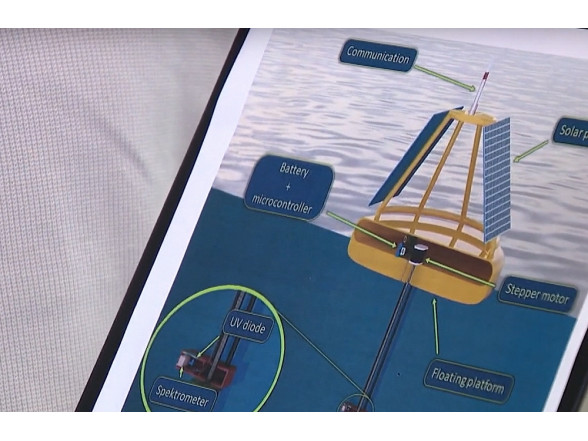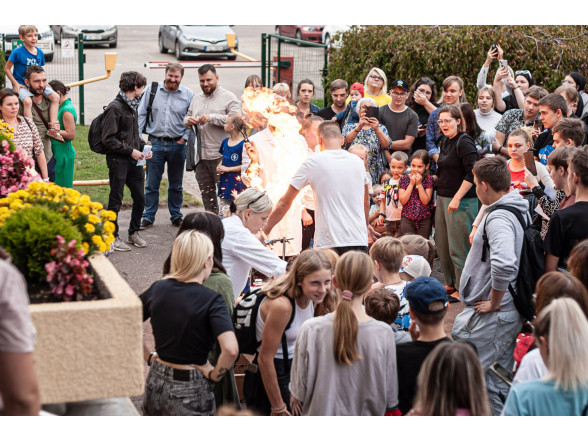The ISSP UL’s leading researcher and the head of the Laboratory of Optical Materials, Dr. phys. Aleksejs Zolotarjovs was a guest at an hour-long Radio Naba program, “Zinātnes vārdā” (In the Name of Science).
In the program, he tells the audience about his natural interest in how things work and his passion for disassembling and assembling back together of different things as a child. The listeners could also find out about the two areas of his research – luminescent coatings and smart buoys.
Together with his colleagues, Aleksejs works to improve the plasma electrolytic oxidation process to make road signs and cars glow in the dark and thus add to traffic safety. This technology could also be used in medical and research institutions, where people work in conditions where ionizing radiation (such as X-rays) is present. This would improve the monitoring and safety of employees.
Another research area Aleksejs talks about in the program is smart buoys. Such buoys could be placed in seas, lakes, or oceans to obtain online data on water quality and pollution close to laboratory measurements. This technology will be beneficial in the future, for example, for fish farms or municipalities that need to control beach water quality. The smart buoy provides quality data very close to the one obtained in the laboratory. Still, it can monitor the water non-stop and signal if something is wrong, thus allowing the authorities to take the necessary measures immediately. Now such monitoring is performed only in the lab, which is usually done once a month.
The young researcher also explains that in the future, researchers at the ISSP UL will be able to create novel materials or improve material properties for various applications thanks to the state-of-the-art laboratory equipment installed at the institute. The ISSP UL can boast with equipment units that are top 10 in the world in their segment.
At the end of the program, Aleksejs emphasizes the role of schools, teachers, and parents in making the young generation interested in STEM subjects and science. The last few years have shown a significant gap in knowledge of society about fundamental things, which needs to be improved.
Zinātnes vārdā allows its listeners to learn about the research of Latvian scientists, their achievements and challenges in a way that is understandable and exciting for everyone.
The radio program in Latvian



